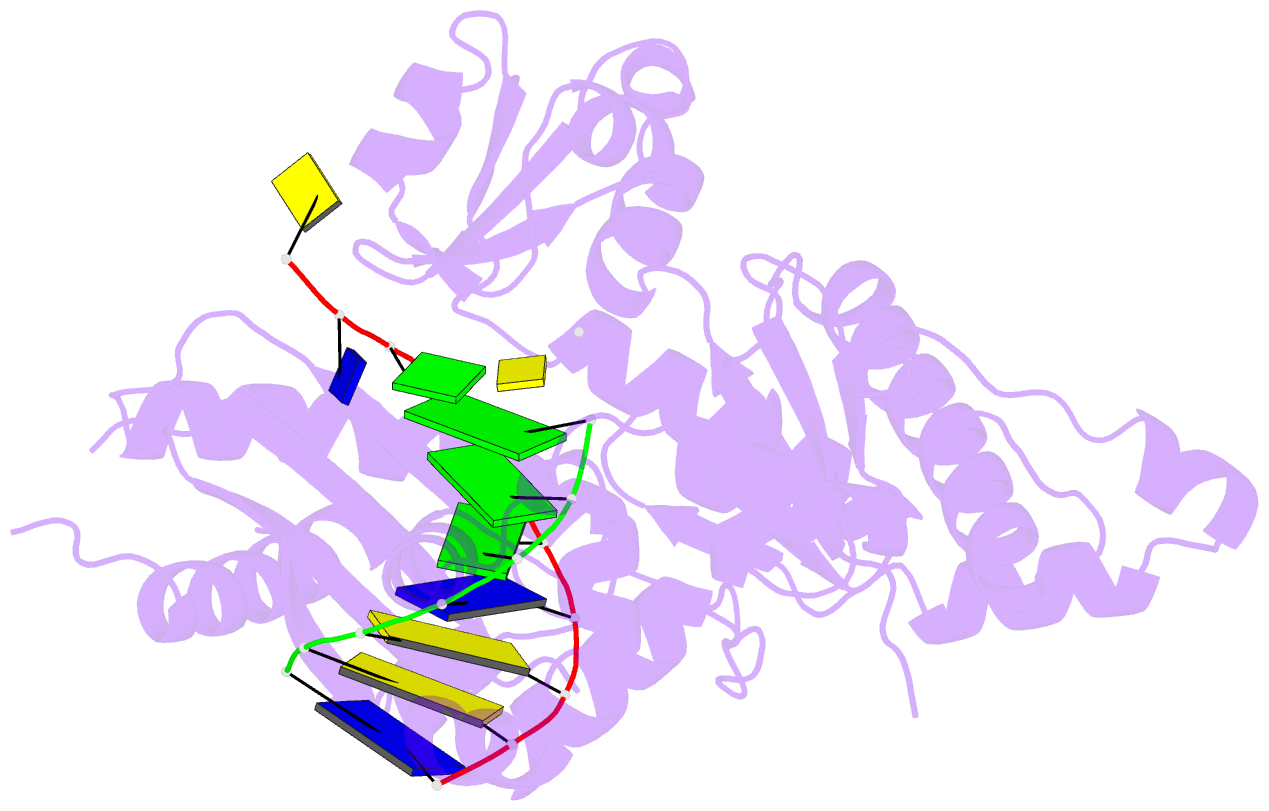Summary information and primary citation
- PDB-id
- 5kt5; SNAP-derived features in text and JSON formats;
DNAproDB
- Class
- transferase
- Method
- X-ray (2.798 Å)
- Summary
- Teranry complex of human DNA polymerase iota r96g inserting dcmpnpp opposite template g in the presence of mn2+
- Reference
- Choi JY, Patra A, Yeom M, Lee YS, Zhang Q, Egli M, Guengerich FP (2016): "Kinetic and Structural Impact of Metal Ions and Genetic Variations on Human DNA Polymerase iota." J.Biol.Chem., 291, 21063-21073. doi: 10.1074/jbc.M116.748285.
- Abstract
- DNA polymerase (pol) ι is a Y-family polymerase involved in translesion synthesis, exhibiting higher catalytic activity with Mn2+ than Mg2+ The human germline R96G variant impairs both Mn2+-dependent and Mg2+-dependent activities of pol ι, whereas the Δ1-25 variant selectively enhances its Mg2+-dependent activity. We analyzed pre-steady-state kinetic and structural effects of these two metal ions and genetic variations on pol ι using pol ι core (residues 1-445) proteins. The presence of Mn2+ (0.15 mm) instead of Mg2+ (2 mm) caused a 770-fold increase in efficiency (kpol/Kd,dCTP) of pol ι for dCTP insertion opposite G, mainly due to a 450-fold decrease in Kd,dCTP The R96G and Δ1-25 variants displayed a 53-fold decrease and a 3-fold increase, respectively, in kpol/Kd,dCTP for dCTP insertion opposite G with Mg2+ when compared with wild type, substantially attenuated by substitution with Mn2+ Crystal structures of pol ι ternary complexes, including the primer terminus 3'-OH and a non-hydrolyzable dCTP analogue opposite G with the active-site Mg2+ or Mn2+, revealed that Mn2+ achieves more optimal octahedral coordination geometry than Mg2+, with lower values in average coordination distance geometry in the catalytic metal A-site. Crystal structures of R96G revealed the loss of three H-bonds of residues Gly-96 and Tyr-93 with an incoming dNTP, due to the lack of an arginine, as well as a destabilized Tyr-93 side chain secondary to the loss of a cation-π interaction between both side chains. These results provide a mechanistic basis for alteration in pol ι catalytic function with coordinating metals and genetic variation.





